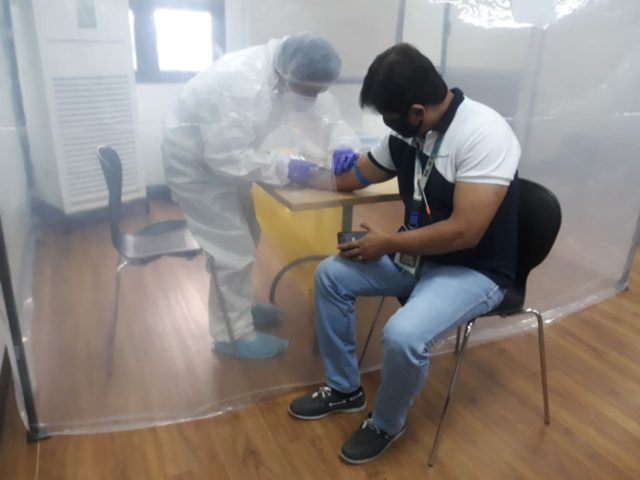NLEX Corporation is beefing up its COVID-19 prevention protocols to assure motorists’ health and safety during the ECQ to MECQ transition as mandated by the IATF.
“We are conducting rapid mass testing starting 15 May 2020 for all our people with priority to the frontliners. We will see to it that only those who are cleared by the testing will face our customers. We are all geared towards keeping everyone safe during this health crisis,” said NLEX Corporation President and General Manager J. Luigi L. Bautista.

NLEX will comply with DTI-DOLE Guidelines on Workplace Prevention and Control of COVID-19 that strongly encourage testing at the workplace. Since the lockdown, the tollway company has implemented stringent hygienic and disinfection protocols for the toll booths, customer service centers (CSCs), employee shuttles, construction project sites, and corporate workplaces.
Everyone is required to wear face masks before entering NLEX-SCTEX facilities and frontliners who need to regularly face customers — toll tellers, patrol crews, rescue teams, and customer service personnel — are equipped with face shields, masks, and gloves. The cash handling tellers are required to sanitize after every transaction.
On top of these intensified preventive measures, employees must continue to strictly comply with health and safety practices such as thermal scan, foot bath, and hand sanitation before reporting to their workstations.
For customer–facing facilities such as toll booths and customer service centers, transparent barriers or protective curtains have been installed. Alcohol and hand sanitizers are likewise easily available for customers visiting our CSCs.
To further prevent the spread of the virus, NLEX Corporation will stringently enforce physical distancing rules in all office spaces. It will continue keeping the number of employees to a minimum by implementing flexible work schedules and limited workforce.
Signs and floor markings have been installed in common areas such as lobbies, hallways, stairways, restrooms, meeting rooms, pantries, and cafeterias to provide visual cues.
Protective partitions between workstations have been improved to maintain the recommended safety distance of one meter. The company has also lowered the capacity of board rooms and other meeting rooms to about 50 percent and encouraged audio or video teleconferencing to reduce physical contact.
NLEX Corporation is also looking into long-term solutions such as renovation of rooms, improving ventilation system, converting manual doors to automatic ones and replacing the manual faucets to hands-free, infrared taps.
“With all these measures in place, our customers and work teams alike can be further assured of their safety within NLEX-SCTEX,” Bautista noted.





